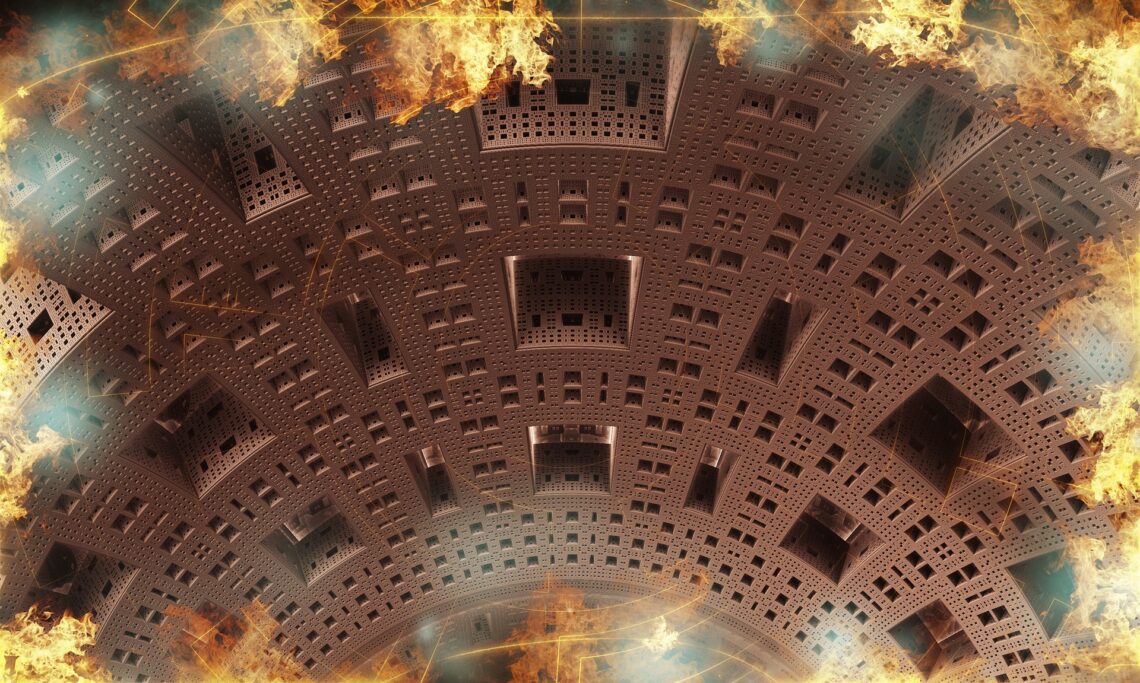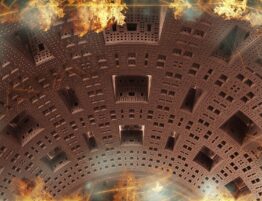
The Risa and Fall of Babylon (Part 2)
Babylon: The Superpower
A century after Isaiah made those predictions, Babylon had become the greatest power in the Middle East. In Jeremiah 50–51, Jeremiah pictures the destruction of the city and the slaughter of its people. He called on any followers of God who happened to be there to “Leave Babylon; save your lives, each of you! Don’t perish because of her guilt. For this is the time of the Lord’s vengeance—he will pay her what she deserves” (Jeremiah 51:6).
Though some believe that Jeremiah’s prophecy was fulfilled when Babylon fell to Cyrus and the Medo-Persians, there are several reasons why that may not be so:
- Daniel was living in Babylon the night the city fell (Daniel 5:30), and he possessed a copy of the book of Jeremiah (Daniel 9:2), yet he did not flee from the city. Why? It may be that he did not believe that this was the fulfillment of Jeremiah’s prophecy.
- There are details that Jeremiah provided that were not fulfilled in Daniel’s day. Twice during his prophecy against Babylon, Jeremiah used the phrase “in those days and at that time”(Jeremiah 50:4, 20). In both instances, Daniel described events that did not take place in 539 BC.
- In verse 5, Jeremiah said that the Jewish people would return to the Lord both physically and spiritually. “They will ask about Zion, turning their faces to this road. They will come and join themselves to the Lord in a permanent covenant that will never be forgotten.”
- In verse 20, Jeremiah predicted the Jewish people would experience national forgiveness of sin. “In those days and at that time—this is the Lord’s declaration—one will search for Israel’s iniquity, but there will be none, and for Judah’s sins, but they will not be found, for I will forgive those I leave as a remnant.”
The promises of spiritual renewal and forgiveness of sin are connected to the Second Coming of Jesus Christ as Israel’s promised Messiah:
Then I will pour out a spirit of grace and prayer on the house of David and the residents of Jerusalem, and they will look at me whom they pierced. They will mourn for him as one mourns for an only child and weep bitterly for him as one weeps for a firstborn. On that day the mourning in Jerusalem will be as great as the mourning of Hadad-rimmon in the plain of Megiddo. The land will mourn, every family by itself: the family of David’s house by itself and their women by themselves; the family of Nathan’s house by itself and their women by themselves; the family of Levi’s house by itself and their women by themselves; the family of Shimei by itself and their women by themselves; all the remaining families, every family by itself, and their women by themselves. (Zechariah 12:10–13:1)
And in this way all Israel will be saved, as it is written, The Deliverer will come from Zion; he will turn godlessness away from Jacob. And this will be my covenant with themwhen I take away their sins. (Romans 11:26–27)
But Jeremiah said that was also the time when Babylon would be destroyed.
- Although Babylon did fall to Cyrus and the Medo-Persian Empire, it was not destroyed; although the king was killed, most of the people were spared. Although some Jews returned to the land, not all did.
- The ruins of Babylon have been used to build other cities. Jeremiah wrote regarding Babylon, “No one will be able to retrieve a cornerstone or a foundation stone from you, because you will become desolate forever. This is the Lord’s declaration” (Jeremiah 51:26). LaHaye and Jenkins state,
It is reliably reported that at least six cities bear the marks of ancient Babylon in their buildings: Seleucia, built by the Greeks; Ctesiphon, by the Parthians; Allmaiden, by the Persians; Kufa, by the Caliphs; Hillah, just a twenty-minute walk from ancient Babylon, built almost entirely from Babylon’s ruins; and Baghdad, fifty miles north of Babylon, also used materials from the ancient city.1
Commenting on Isaiah 13:20–22, John Walvoord says,
As far as the historic fulfillment is concerned, it is obvious from both Scripture and history that these verses have not been literally fulfilled. The city of Babylon continued to flourish after the Medes conquered it, and though its glory dwindled, especially after the control of the Medes and Persians ended in 323 B.C., the city continued in some form or substance until A.D. 1000 and did not experience a sudden termination such as is anticipated in this prophecy.2
So how do we know that the prophecies of Isaiah and Jeremiah were not fulfilled when Babylon fell to Cyrus and the Medo-Persian empire? The answer can be found in an often-overlooked prophecy from the book of Zechariah.
Zechariah was one of the Jews who returned to the land following the fall of Babylon to Cyrus. He encouraged the people to rebuild the temple and delivered a series of prophecies, some of which were fulfilled in remarkable detail by Jesus at His first coming. Zechariah also provided an astounding series of predictions that look toward Jesus’s Second Coming. But hidden in the book is another message often overlooked.
In chapters 1–6, Zechariah shared a series of eight visions. The visions are arranged in a chiastic structure. All the visions are important, but we want to focus on the seventh vision—the vision of a woman in a basket. In Zechariah 5:5–11, God’s messenger showed Zechariah a measuring basket slightly smaller in size than a modern bushel basket. When Zechariah asked what the basket represented, he told Zechariah, “This is their iniquity in all the land” (5:6). According to the angel, the basket symbolized the “iniquity”in Israel.
The description of the basket’s contents becomes clearer in the verses that follow. The angel lifted the cover off the basket. Zechariah looked inside and saw a woman seated there. The angelic messenger then explained what she represented: “This is Wickedness” (5:8). She represented an evil that seeks to create havoc throughout the world. Kenneth Barker states,
When the cover of lead was lifted from the basket, wickedness was exposed, personified by a woman (cf. Rev 17:3-5). Like the basket itself (v.6), the woman in it represents the sin of the people in Palestine, whose measure or cup of evil was full. The whole evil system was to be destroyed. In v.8 the Hebrew word for “wickedness” is feminine. This may explain why the wickedness of the people is personified as a woman. “Wickedness”—a general word denoting moral, religious, and civil evil—is frequently used as an antonym of righteousness (e.g., Prov 13:6; Ezek 33:12).3
The angelic messenger “shoved her down into the basket and pushed the lead weight over its opening” (5:8). Evil was being held in check by God in Zechariah’s day, just as He is holding it back today. As Paul told the believers in Thessalonica, “For the mystery of lawlessness is already at work, but the one now restraining will do so until he is out of the way” (2 Thessalonians 2:7).
Zechariah watched as the basket was carried away. He asked, “Where are they taking the basket?” (5:10). The messenger’s response is the key to this vision. He replied, “To the land of Babylonia, where they will build a temple for the basket. And when the temple is ready, they will set the basket there on its pedestal” (5:11 NLT).
Wickedness was being taken back to “the land of Babylonia”—literally to “the land of Shinar” where, according to Genesis 11:2–4, the tower of Babel was built. It is the place where Nebuchadnezzar carried off the treasures of God’s temple (Daniel 1:2 NKJV). “Shinar” is the region known today as southern Iraq. And the word translated “house” is the normal word for a dwelling or habitation.
Wickedness will return to call Babylon home.
Parallels between Zechariah 5:5–11 and Revelation 17–18
| Zechariah 5:5–11 | Revelation 17–18 |
| “A woman sitting inside the basket” | “A woman sitting on a scarlet beast … seven mountains on which the woman is seated … seven mountains on which the woman is seated” (17:3, 9, 15) |
| Emphasis on commerce: “a measuring basket” | Emphasis on commerce: “The merchants of the earth will weep and mourn over her, because no one buys their cargo any longer” (18:11) |
| Woman’s name: “Wickedness” | Woman’s name: “Babylon the Great, the Mother of Prostitutes and of the Detestable Things of the Earth” (17:5) |
| False worship: “to build a shrine” | False worship (18:1–3) |
| Woman taken to Babylon, “the land of Shinar” | Woman is called “Babylon” |
1 Tim LaHaye and Jerry Jenkins, Are We Living in the End Times? (Carol Stream, IL: Tyndale House Publishing, 2011), p. 135.
2 John Walvoord, The Nations in Prophecy (Grand Rapids, MI: Zondervan, 1967), 63–64.
3 Kenneth L. Barker, “Zechariah,” in The Expositor’s Bible Commentary, Volume 7: Daniel and the Minor Prophets (Grand Rapids, MI: Zondervan, 1985), 634.
Unless otherwise noted, all Scripture quotations are taken from The Christian Standard Bible. Copyright © 2017 by Holman Bible Publishers. Used by permission. Christian Standard Bible®, and CSB® are federally registered trademarks of Holman Bible Publishers, all rights reserved.
Dr. Miguel J. Gonzalez is the Founder and President of Reasons for Faith International Ministries. He served as a pastor for ten years in Charlotte, NC and has taught in churches and conferences throughout the United States. He currently hosts the Time in the Word and Truth To Live By podcasts and writes at KnowingChristianity.blogspot.com.
Copyright © 2006–2022 by Miguel J. Gonzalez Th.D. and published by Reasons for Faith International Ministries, Inc. by permission. No part may be altered or edited in any way. Permission is granted to use in digital or printed form so long as it is circulated without charge, and in its entirety. This document may not be repackaged in any form for sale or resale. All reproductions must contain the copyright notice (i.e., Copyright © 2006-2021 Miguel J. Gonzalez Th.D.) and this Copyright/Limitations notice.



